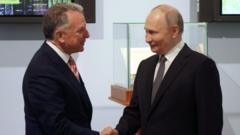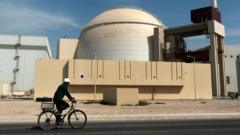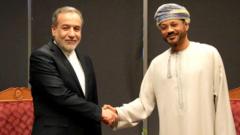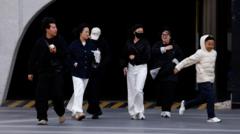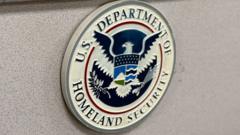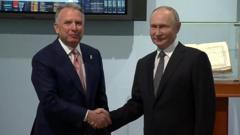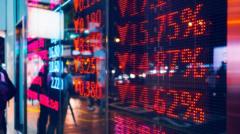Bill Ackman, a billionaire hedge fund manager and supporter of Trump, has cautioned against the recently imposed trade tariffs, labeling them as a potential trigger for an "economic nuclear winter." He argues for a temporary pause to allow countries to renegotiate trading terms with the U.S.
Billionaire Investor Urges Trump to Reassess Trade Tariffs Amid Economic Concerns
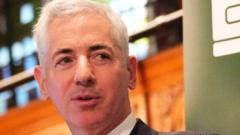
Billionaire Investor Urges Trump to Reassess Trade Tariffs Amid Economic Concerns
A major Wall Street investor warns President Trump that his new tariffs could plunge the economy into a crisis.
In the backdrop of global stock market declines and pressures from other financial leaders, Ackman, alongside JPMorgan Chase's Jamie Dimon, has voiced concerns that these tariffs could elevate consumer prices and provoke trade conflicts. Despite such warnings, Trump defends the tariffs as necessary for revitalizing the domestic economy and creating jobs.
---
Billionaire investor Bill Ackman has issued a stark warning to President Donald Trump regarding the newly implemented trade tariffs, cautioning that they could lead to an "economic nuclear winter." Ackman, who has transitioned to support Trump ahead of the 2024 election, suggested that the president should consider pausing the tariffs for three months, enabling nations to renegotiate their trading relationships with the United States.
This warning was echoed by JPMorgan Chase's chairman, Jamie Dimon, who expressed concerns that the tariffs could lead to increased prices for American consumers. Despite market upheaval following the announcement of the tariffs, Trump has staunchly defended his decision, claiming it as a necessary prescription for correcting perceived imbalances in global trade that disadvantage the U.S.
On the global stage, stock markets have shown signs of distress, particularly in Europe and Asia, as investors respond to the sweeping tariff measures. Ackman acknowledged the validity of Trump's criticisms of the global trade system but expressed that the current tariffs are "massive and disproportionate," failing to differentiate between ally and adversary nations.
The tariffs, with a 10% baseline and rates escalating to as much as 50% for select countries, have already sparked retaliatory actions, particularly from China, which has imposed its own tariffs on American goods. Ackman fears that Trump's approach risks eroding investor confidence, characterizing the situation as an "economic war against the whole world."
In light of these developments, Ackman urged Trump to seize the opportunity for a temporary cessation of tariffs, promoting negotiation instead to stimulate new investments. Meanwhile, Dimon, in a letter to shareholders, indicated that the tariffs may lead to inflationary pressures and increased recession risks, advising that a swift resolution to the trade issues could mitigate long-term negative impacts.
Despite these assessments, Trump's administration has downplayed recession fears, with officials contending that a downturn is unlikely. As the economic discourse surrounding the tariffs intensifies, Trump maintains that international partners are eager to negotiate favorable agreements. The situation remains fluid as markets brace for the unfolding outcomes of these contentious trade policies.
---
Billionaire investor Bill Ackman has issued a stark warning to President Donald Trump regarding the newly implemented trade tariffs, cautioning that they could lead to an "economic nuclear winter." Ackman, who has transitioned to support Trump ahead of the 2024 election, suggested that the president should consider pausing the tariffs for three months, enabling nations to renegotiate their trading relationships with the United States.
This warning was echoed by JPMorgan Chase's chairman, Jamie Dimon, who expressed concerns that the tariffs could lead to increased prices for American consumers. Despite market upheaval following the announcement of the tariffs, Trump has staunchly defended his decision, claiming it as a necessary prescription for correcting perceived imbalances in global trade that disadvantage the U.S.
On the global stage, stock markets have shown signs of distress, particularly in Europe and Asia, as investors respond to the sweeping tariff measures. Ackman acknowledged the validity of Trump's criticisms of the global trade system but expressed that the current tariffs are "massive and disproportionate," failing to differentiate between ally and adversary nations.
The tariffs, with a 10% baseline and rates escalating to as much as 50% for select countries, have already sparked retaliatory actions, particularly from China, which has imposed its own tariffs on American goods. Ackman fears that Trump's approach risks eroding investor confidence, characterizing the situation as an "economic war against the whole world."
In light of these developments, Ackman urged Trump to seize the opportunity for a temporary cessation of tariffs, promoting negotiation instead to stimulate new investments. Meanwhile, Dimon, in a letter to shareholders, indicated that the tariffs may lead to inflationary pressures and increased recession risks, advising that a swift resolution to the trade issues could mitigate long-term negative impacts.
Despite these assessments, Trump's administration has downplayed recession fears, with officials contending that a downturn is unlikely. As the economic discourse surrounding the tariffs intensifies, Trump maintains that international partners are eager to negotiate favorable agreements. The situation remains fluid as markets brace for the unfolding outcomes of these contentious trade policies.

